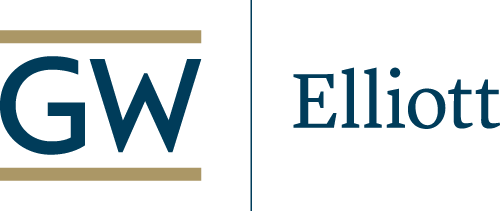Alex Woodson is a digital content producer at Carnegie Council for Ethics in International Affairs. He has an MA in Global Communication from the Elliott School. Woodson previously interned at Council on Foreign Relations, Interaction, and Worldwatch Institute. Before his career in international affairs, Woodson was a journalist, working for three years as a digital media reporter in The Hollywood Reporter’s New York City bureau. He has also worked for Scholastic Inc., the National Basketball Association, Vibe magazine, and The Shopper News, a local newspaper in New Jersey. Originally from Demarest, New Jersey, Woodson a BA in journalism from NYU. He lives in Queens, New York with his wife and two cats. He enjoys reading, watching soccer, and traveling.
Describe your current position and what made you interested in applying?
I am a digital content producer at Carnegie Council for Ethics in International Affairs. Our mission is to inspire and guide debate, and to educate the public on ethical choices in matters related to global affairs. I manage the website (www.cceia.org) and our social media channels, host and produce podcasts and videos, and write and edit internal and external communications. I have been at Carnegie Council for about nine years and it’s a great fit for me. I like having a job that allows me to follow international affairs closely, but that isn’t tied to the news cycle. We’re not concerned with being the first or the loudest to comment on a story. Our focus is facilitating nuanced conversations on the ethical impact of policies and global developments.
What do you wish other people knew about your organization?
We’re a small organization and always trying to raise our profile. The students and alumni of Elliott School are our target audience so I would encourage everyone reading this to check out our virtual events and podcasts and join our mailing list. We’re currently focused on four “Impact Initiatives”: artificial intelligence and equality, migration, climate change and governance, and U.S. foreign policy.
What Elliott School courses would you recommend for students interested in your field and why?
I recommend any class with Paul Williams – I had a couple courses with him on conflict resolution that were great. I don’t think he’s still at Elliott School anymore, but I had a terrific course on Global Terrorism with an adjunct professor named Peter Faber. Both Professors Williams and Faber really forced me to re-consider some assumptions about why conflict happens and the nature of democracy. I also took a copy-editing skills course with Alice Falk. I don’t think she’s at Elliott School anymore, either, but I would highly recommend this skills course to anyone who needs to write for their work.
What was your experience with the job search post-graduation? Can you provide any wisdom for students starting their job search?
It was tough right after I graduated. I was committed to finding a job in New York City, which is not easy in the international relations field. I got my job at Carnegie Council (part-time at first) after about five months of freelancing, sending applications, and searching through networking — a friend of a friend worked at the organization and put me in touch with the communications director. My wife is actually a career counselor at a small college in New York and as we’ve both been working at home for the past year, I often hear her talk to her students. There’s no secret. You just have to work hard and be persistent. Maybe the biggest thing I’ve learned is to not wait until you’re looking for a job to start networking. People will be much more inclined to help you out if they know you’re genuinely interested in them, beyond what kind of professional connections they may have.
What book should be required reading for all Elliott School grad students and why?
My first answer is 1984, but I’m sure most grad students have already read that. I’m not exaggerating when I say that that book changed how I see the world when I read it in high school. It’s scary how relevant it has been over the past five years. My other answer is The Utility of Force by Rupert Smith. I read it for a Military Geography course in grad school and it’s mind-blowing. One chapter succinctly traces military history and technology from Napoleon to Hiroshima and Nagasaki. I think we all understand that we’re still a part of history and the choices that our leaders make now could have relevance for decades or even centuries, but it’s another thing to see it illustrated so vividly in a book chapter.
Want to connect with current Elliott School students and alumni? Click here to see how!
Find out more about this program by creating a CustomViewbook!
Join us for an information session, RSVP here!
Click here to apply to the Elliott School!
Twitter · Facebook · Instagram
The #ElliottProud profile series is managed by the Elliott School Office of Graduate Admissions and highlights graduate program alumni to answer common questions posed by prospective, incoming, and current students. For more information on this series or to submit questions, e-mail the Office of Graduate Admissions at esiagrad@gwu.edu.
The views expressed by students profiled do not necessarily represent those of organizations they work for, are affiliated with, or the Elliott School of International Affairs.

